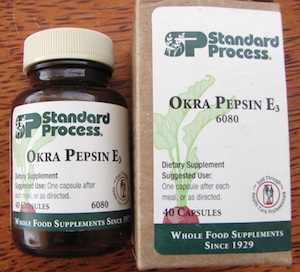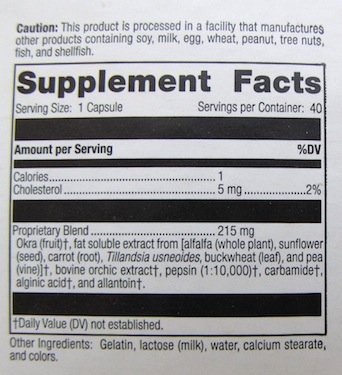What Magnesium Deficiency Can Do to Your Health
By not having your daily greens, you could be setting yourself up for Magnesium deficiency. When the body is low in Magnesium, many imbalances in health can result, including heart problems, anxiety, kidney disease, constipation, osteoporosis, chronic fatique and even depression.
All information in this article is for educational purposes only.
It is not for the diagnosis, treatment, prescription or cure of any disease or health condition.

Green Leafy Vegetables for Health!
According to Dr. Carolyn Dean, author of The Magnesium Miracle, Magnesium is of therapeutic value in treating a myriad of symptoms.
Top 15 Health Conditions Related to Magnesium Deficiency:
1. Anxiety and panic attacks: Magnesium normally helps keep adrenal stress hormones under control.
2. Asthma: Both histamine production and bronchial spasms increase with magnesium deficiency.
3. Blood clots: Magnesium has an important role to play in preventing blood clots and keeping the blood thin without any side effects.
4. Bowel disease: Magnesium deficiency slows down the bowel, causing constipation, which could lead to toxicity and mal-absorption of nutrients as well as colitis.
5. Cystitis: Bladder spasms are worsened by magnesium deficiency.
6. Depression: Serotonin, which elevates mood, is dependent on magnesium. A magnesium deficient brain is also more susceptible to allergens, foreign substances that in rare instances can cause symptoms similar to mental illness.
7. Detoxification: Magnesium is crucial for the removal of toxic substances and heavy metals such as aluminum and lead from the body.
8. Diabetes: Magnesium enhances insulin secretion, facilitating sugar metabolism. Without magnesium, insulin is not able to transfer glucose into cells. Glucose and insulin build up in the blood, causing various types of tissue damage.
9. Fatigue: Magnesium-deficient patients commonly experience fatigue because dozens of enzyme systems are under functioning. An early symptom of magnesium deficiency is fatigue.
10. Heart disease: Magnesium deficiency is common in people with heart disease. Magnesium is administered and hospitals for acute myocardial infarction and cardiac arrhythmia. Like any other muscle, the heart requires magnesium. Magnesium is also used to treat angina, or chest pain.
11. Hypoglycemia: Magnesium keeps insulin under control; without magnesium, episodes of low blood sugar can result.
12. Insomnia: Sleeper regulating melatonin production is disturbs without sufficient magnesium.
13. Kidney disease: Magnesium deficiency contributes to atherosclerotic kidney failure. Magnesium deficiency creates abnormal lipid levels and worsening blood sugar control in kidney transplant patients.
14. Migraine: Serotonin balance is magnesium-dependent. Deficiency of serotonin can result in migraine headaches and depression.
15. Osteoporosis: Use of calcium with vitamin D to enhance calcium absorption without balancing amount of magnesium causes further magnesium deficiency, which triggers a cascade of events leading to bone loss.
Having a Green Smoothie every day is the best way to start getting your body back into balance with the nutrients it needs, naturally. To enrich your diet with Magnesium, increase consumption of green vegetables, nuts, seeds legumes and unprocessed grains. Of course, a daily Green Smoothie will do this for you! Add 1 Tbsp. dried organic Kelp powder to you Green Smoothie for the highest Magnesium-density food there is (100g Kelp has 760mg Magnesium). Add 1 Tbsp. organic Molasses for more Magnesium (100g Molasses has 258mg Magnesium). Molasses is especially good for pregnant women to avoid cramps and premature labor…yes, that can be caused from a simple lack of magnesium!
The Recommended Daily Allowance (RDA) for Magnesium is 400-600mg daily. For a supplement, you can take 200mg three times daily.
For additional Magnesium, you can also apply Magnesium Oil or Magnesium Spray to your underarms or wrists every day. Or take an epsom salt bath! Known as Transdermal Magnesium Therapy, this is a really good way to supplement the natural diet. There’s a good book on this subject called Transdermal Magnesium Therapy by Marc Sircus. Other foods high in Magnesium include brazil nuts, walnuts, cashews, pecans and filberts. Apricots, dates, figs and avocado are also good sources of Magnesium.







If your goal is to achieve excellent health and longevity, then a good diet filled with natural, whole and pure foods is the key.
Looking for Green Smoothie recipes to eat more high Magnesium foods?
 Check out my NEW book Green Smoothies for Dummies – I’ve got loads of recipes using dark leafy greens so you get easily get you daily dose of Magnesium, naturally.
Check out my NEW book Green Smoothies for Dummies – I’ve got loads of recipes using dark leafy greens so you get easily get you daily dose of Magnesium, naturally.
Did you know that lack of Magnesium can lead to massive sugar cravings? Perhaps you can start to see how your body really works as a whole. A deficiency in one area can lead to other problems somewhere else.
When you take care of your whole body, you get whole body health. When you let your food be your medicine, you are always moving towards better health.
Find the book Green Smoothies for Dummies on iTunes or amazon.com!
More on Skin Cleansing:
- Stop Premature Aging: Take this Anti-Aging Quiz and Mirror Test Now!
- How to Clean the Lymphatic System & Detox the Skin in 5 Simple Steps
- Recipe for Raw Food Detox Salad: Cucumber & Onion with Tangy Dressing
- Food Containing Ribonucleotides – The Ribo Rash from Food Additives 635, 627 and 631
- Dry Skin Brushing to Detox Lymphatic & Reduce Cellulite Naturally!
More on Liver Cleansing:
- Gallstone Flush & Liver Detox – Recipe & Cleanse Info
- Recipe: Raw Food Healing ‘Jamu’ or ‘Love’ Juice from Indonesia
- Raw Detox Salad Recipe
- Is it safe to detox while pregnant or breastfeeding?
- Gluten-Free, Raw Food and Detox at Pachamama, Costa Rica










Follow Jennifer